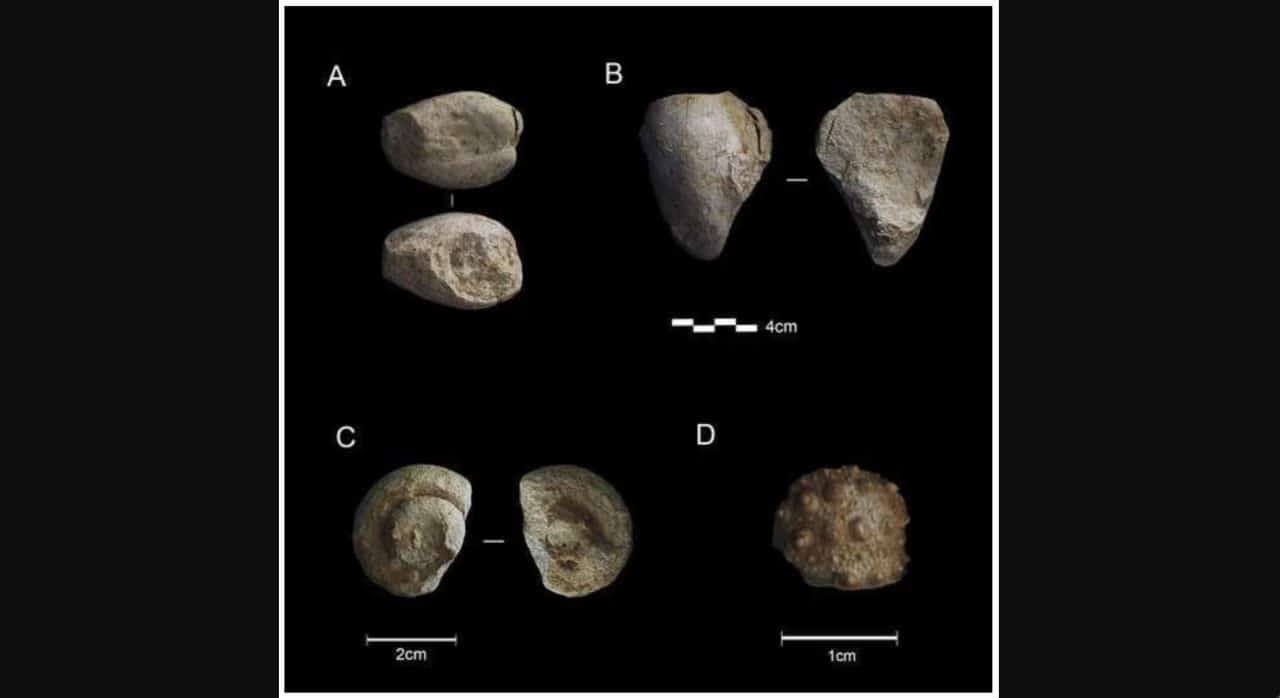About 40-50 thousand years ago, Neanderthals, as well as intelligent people, lived in Europe. However, according to various estimates, traces of their existence in the period from 40 thousand (certain) to 28 thousand (disputed) years ago are gradually disappearing, indicating their extinction. Neanderthals were long thought to be not very intelligent, but the results of a new study show that these ancient inhabitants of Earth collected objects and had abstract thinking.
Until 2019, the ancestors of Neanderthals and modern humans were thought to have split about 500,000 to 600,000 years ago. But analysis of the remains of Neanderthal ancestors found in the Cave of Bones (Sima de los Huesos) in northern Spain showed that the split occurred about 800,000 years ago.
Now in another Spanish cave called Prado Vargas, a collection of marine fossils collected by Neanderthals about 50 thousand years ago has been discovered. That’s according to the authors of a new study published in the journal quaternary, It points to the existence of abstract thought in Neanderthals and may lead to a revision in their cognitive abilities.
The 15 samples of Upper Cretaceous marine fossils found in the excavations (the lower limit dates back to 100.5 million years ago and the upper limit dates back to 66 million years ago) include representatives of the families Gryphaeidae, Pectinidae, Cardiidae, Pholadomyidae, Pleurotomariidae. Except for one, which was probably used as a chopper or hammer (as evidenced by the presence of characteristic markings), not all of these fossils were used as tools or ornaments.
This is the first time so many artifacts have been discovered in a Neanderthal cave. Such finds had been isolated before. A research group from the University of Burgos (Spain) stated that collecting objects that do not have any utilitarian value demonstrates the ability to give them a special symbolic and/or aesthetic meaning.
Also read – Rats have a “magical” ability to move matter using sound waves
The authors of the scientific paper concluded: “Neanderthals may have collected these fossils due to their unusual shape or rarity, which indicates the presence of complex cognitive processes in them.”
The team highlighted aesthetic interest (the shape and appearance of fossils), symbolic or ritual significance (for example, strengthening social bonds), and childhood activities (where the remains are fossils) among the reasons why these ancient inhabitants of the planet might collect fossils. children were found in a cave who could play and learn with them).
This discovery adds to growing evidence of more complex Neanderthal behavior and thought. Naked Science has previously reported that they cared for the sick and elderly, created works of art, used penicillin and salicylic acid to treat and relieve pain, and cooked porridge from wild barley.
“Neanderthals may have had abstract thinking abilities similar to modern humans. The results open new perspectives for understanding their culture and social organization.” concluded the researchers.
Therefore, this archaeological find may indicate that Neanderthals were the first collectors in human history and that they showed interest in the world around them not only from a utilitarian perspective, but also from an aesthetic and symbolic perspective.













